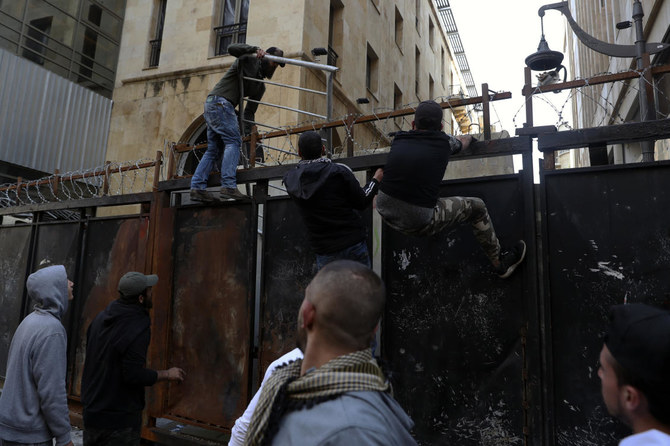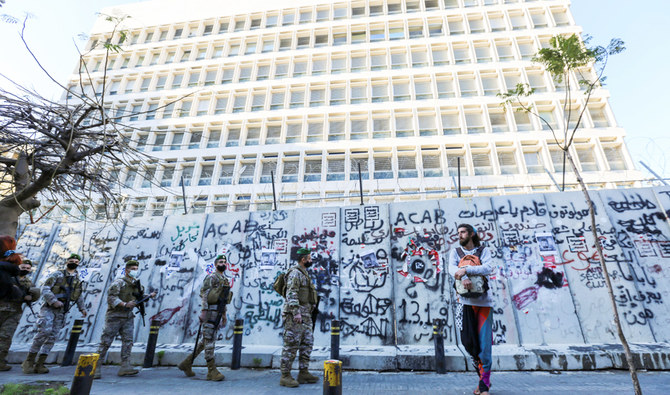
By NAJIA HOUSSARI — arabnews — BEIRUT: Lebanese supermarkets halted sales and businesses closed their doors on Saturday as the country’s embattled currency slumped to a record low on the black market. With the dollar exchange rate exceeding 12,000 Lebanese pounds, panic erupted on the streets as shopkeepers and major outlets stopped selling goods to avoid incurring losses. Amid growing alarm at the country’s increasingly precarious state, activists in working-class areas in Mount Lebanon climbed the minarets of mosques and called on people to take to the streets. A spokesperson for the Oct. 17 revolution said: “We will stay in the squares until the corrupt system falls.” Hundreds of protesters in Martyrs’ Square in downtown Beirut pounded on metal barriers blocking access to parliament and hurled rocks at security forces manning roadblocks. Anti-riot personnel launched tear-gas grenades after violent clashes erupted between protesters and security forces.
In the past three days, Lebanon’s currency has endured a roller-coaster ride, rising to 9,000 Lebanese pounds against the dollar before falling to 10,000 Lebanese pounds. But in a dramatic collapse on Saturday, the Lebanese pound fell from 11,750 to 12,200 against the dollar, with the slump worsening by the hour despite efforts to close online trading platforms. Economist Louis Hobeika told Arab News: “The strong demand for the dollar is caused by the decline in confidence in the country. People are panicking about the future.” Hobeika rejected the idea that banks are buying up dollars. “The dollar trading volume in the Lebanese market does not exceed $2.5 million. The banks want to increase their capital on the request of the Banque du Liban collectively and need $3.5 billion — and this cannot be secured from the Lebanese market.”


![Atallah works at the American University of Beirut Hospital and hosts a weekly podcast [File: YouTube/Screengrab]](https://www.aljazeera.com/wp-content/uploads/2021/03/Capture-2.jpg?resize=770%2C513)



